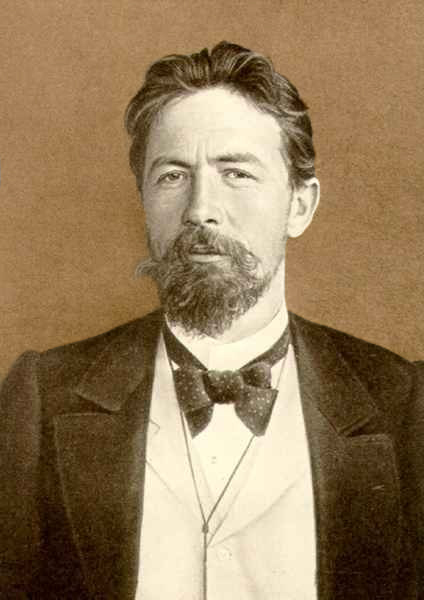
Anton Chekhov grew up in a family of six children, five of whom were boys. They lived in the town of Taganrog where his ex-serf father, Pavel Yegorovitch, moved upon acquiring his freedom. There, Pavel ran a general store that fell to shambles both because of his poor business practices and the installation of a railway to Vladikavkaz. In 1876, the family fell into debt. Pavel closed up shop and fled to Moscow in order to avoid going to prison. Chekhov’s two elder brothers were already studying in Moscow, and his mother and the rest of the family followed in the months to come. Chekhov, at just sixteen, stayed behind to sell the family’s possessions. He remained there for three years, earning his living in order to pay for his high school expenses. Below, Chekhov writes to his youngest brother, Mihail.
Taganrog
1 July 1876
Dear Brother Misha,
I got your letter when I was fearfully bored and was sitting at the gate yawning, and so you can judge how welcome that immense letter was. Your writing is good, and in the whole letter I have not found one mistake in spelling. But one thing I don’t like: why do you style yourself “your worthless and insignificant brother”? You recognize your insignificance?…Recognize it before God; perhaps, too, in the presence of beauty, intelligence, nature, but not before men. Among men you must be conscious of your dignity. Why, you are not a rascal, you are an honest man, aren’t you? Well, respect yourself as an honest man and know that an honest man is not something worthless. Don’t confound “being humble” with “recognizing one’s worthlessness.”…
It is a good thing that you read. Acquire the habit of doing so. In time you will come to value that habit. Madame Beecher-Stowe has wrung tears from your eyes? I read her once, and six months ago read her again with the object of studying her—and after reading I had the unpleasant sensation which mortals feel after eating too many raisins or currants…Read “Don Quixote.” It is a fine thing. It is by Cervantes, who is said to be almost on a level with Shakespeare. I advise my brothers to read—if they haven’t already done so—Turgenev’s “Hamlet and Don Quixote.” You won’t understand it, my dear. If you want to read a book of travel that won’t bore you, read Gontcharov’s “The Frigate Pallada.”
…I am going to bring with me a boarder who will pay twenty roubles a month and live under our general supervision. Though even twenty roubles is not enough if one considers the price of food in Moscow and mother’s weakness for feeding boarders with righteous zeal.
From Letters of Anton Tchehov to his Family and Friends. Translated by Constance Garnett. London: Chatto and Windus, 1920. pp. 39-40.
FURTHER READING
Read Chekhov’s story, “Happiness,” based off a tale told by one of his nurses.
Read another Chekhov letter, addressed to his eldest brother, describing the eight characteristics required of a cultured person.
Read an essay on Chekhov’s many lovers; his first documented relationship began at nineteen, during those three years in Taganrog.


